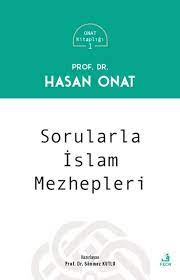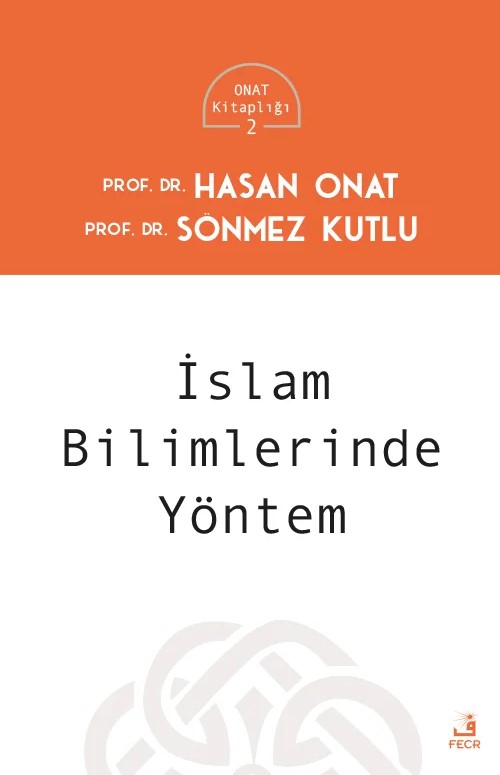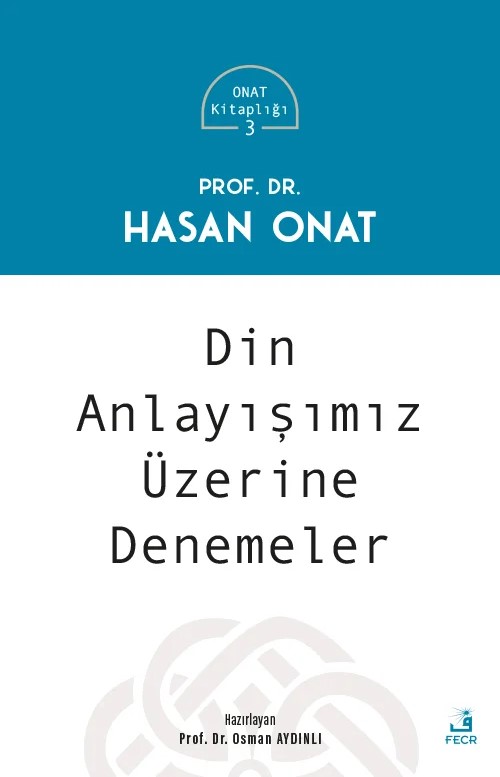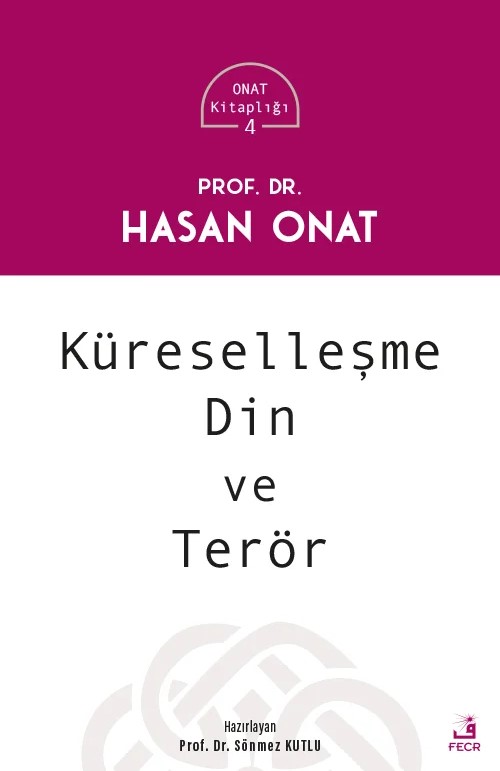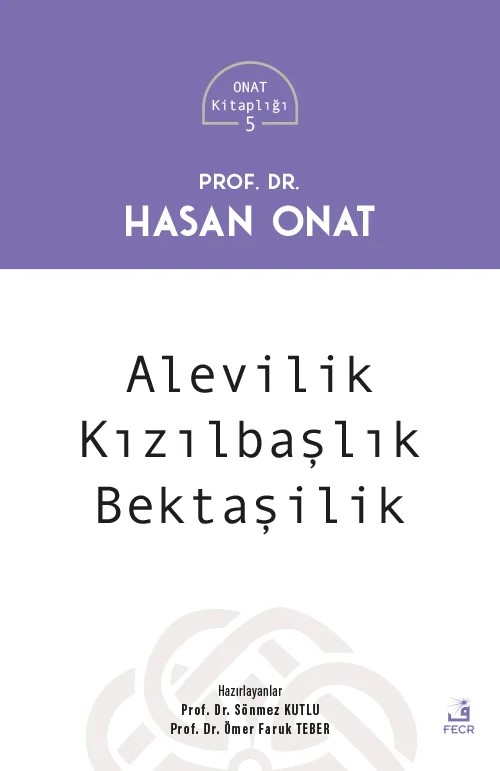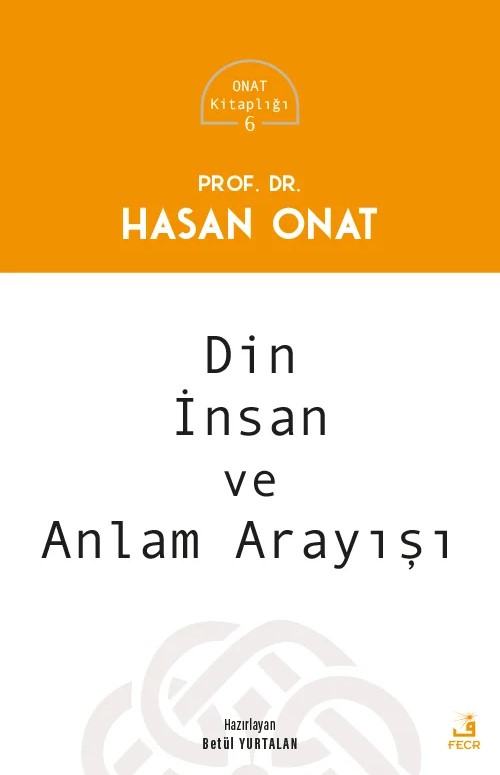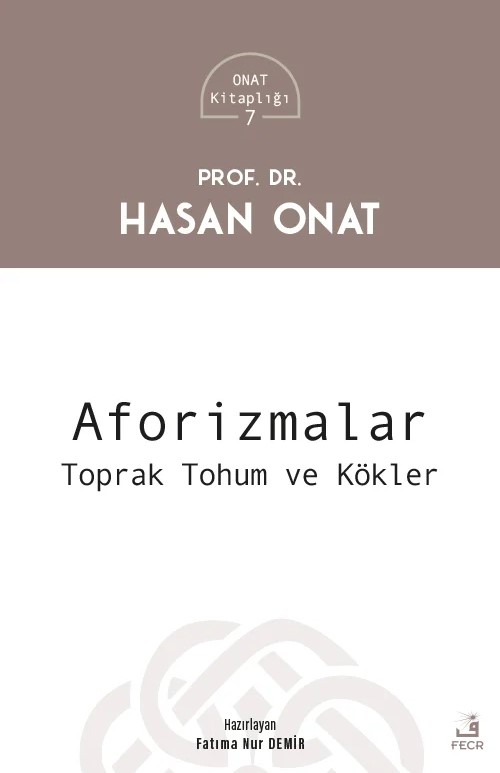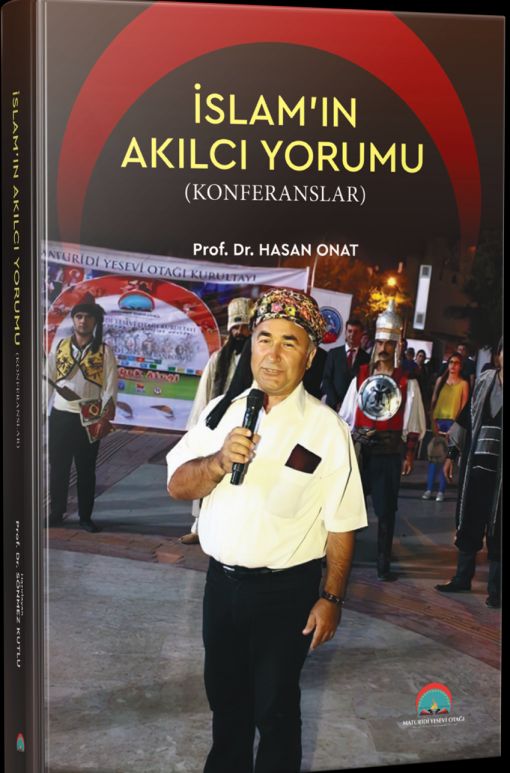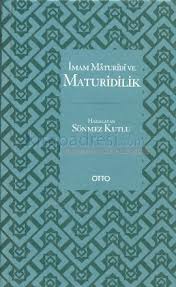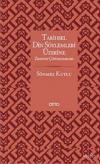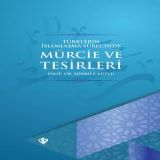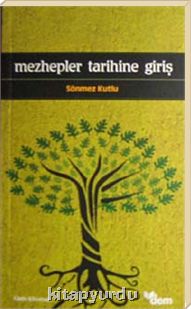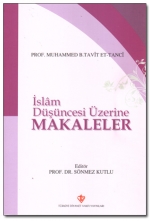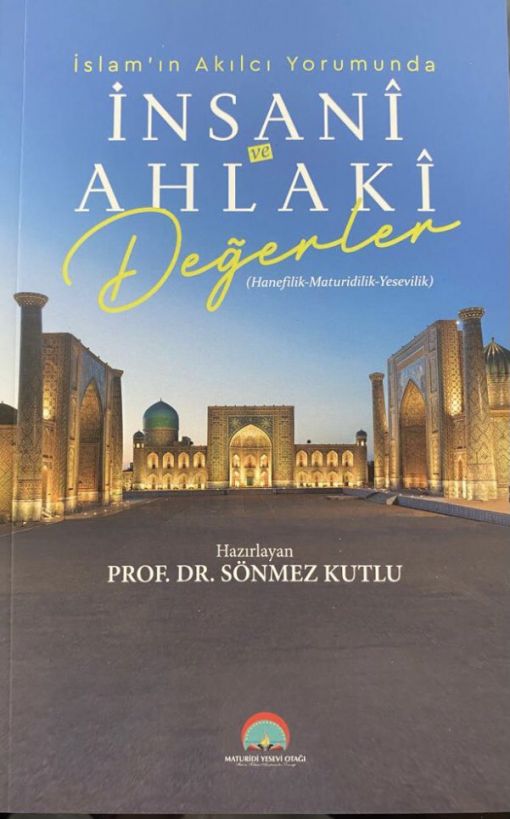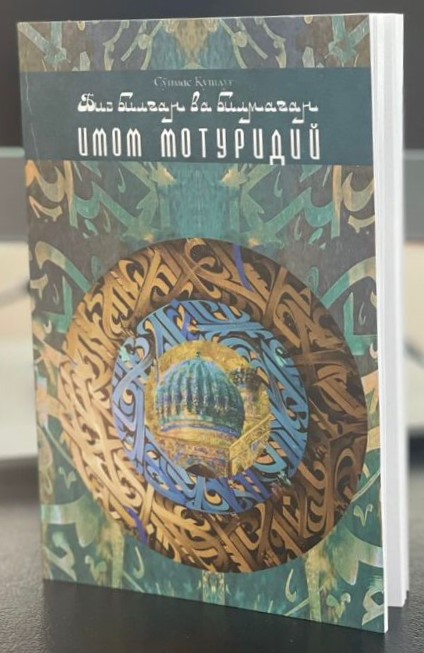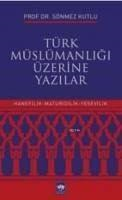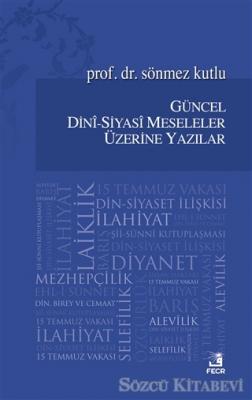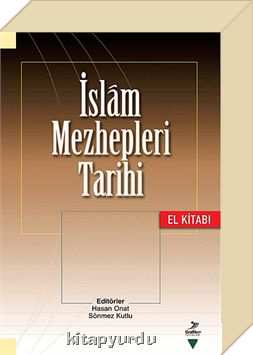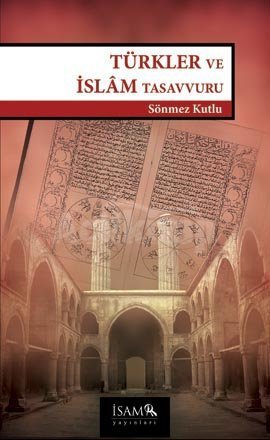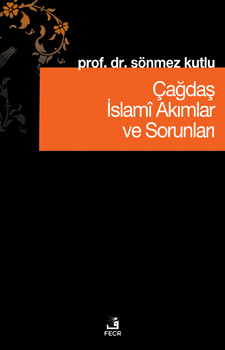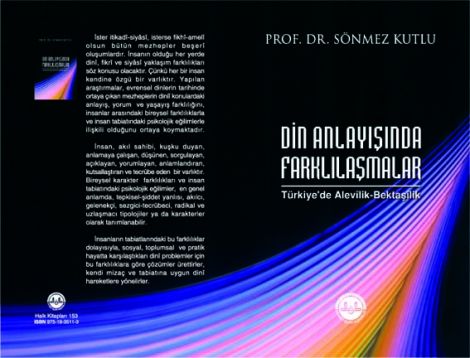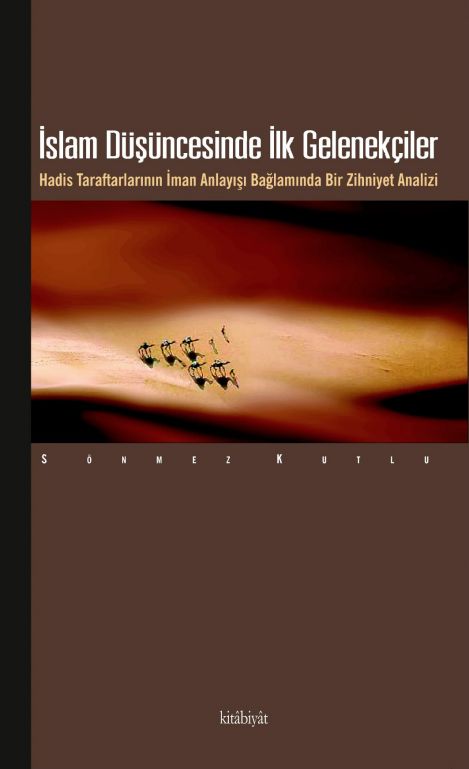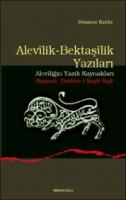The Differentiation of Religion and Politics
THE DIFFERENTIATION OF RELIGION (DIYÂNAT) AND POLITICS (SIYÂSAT) ACCORDING TO IMÂM AL-MÂTURÎDÎ
The relation between religion and politics has always been a problematic issue throughout the history and the issue of the legitimacy of the authority has been a matter of dispute. In the West where clergy and rulers were in a political struggle, this issue was resolved reached by accepting secularism which aims to separate religious issues from political issues. In the Islamic World, on the other hand, muslims tried to adopt a different path in reaction to the stuation, but could not manage to avoid a western style secularism and consequently produced different secularist approches. In Islamic History, there has been no conflict between religious scholars and politicial institution since there is no religious establishment in Islam as it is the case of Christianity. Political conflict in Islam was between two leading Quraysh tribes, the Hashimids and the ‘Umayyads. Later, both Sunnis and Shi’a gave unlimited religious, political and legal power to their authorities: caliphs and imams. By allocating some attributes normally given to God to their imams, the imams become unquestionable personalities.The oldest example of unique secularization project in the Islamic World is the Ottoman experience, which began with Tanzimat or Reorganisation Rescript and later modern Turkey was established.
In the modern Turkey, we can talk about secularism which was adopted earlier than other muslim countries. Though this distinction was supported by some theological, legal and sociological arguments, it has not been fully implemented. In the process of the legitimation, it is clear that Sayyid Bey, the Turkish legal scholar, who played a key role in the abolishment of caliphate in the Turkish Grand National Assembly and who emphasized the importance of national independence, it is obvious that he used Hanafî-Mâturîdî religious and legal works. Although there is no direct reference to al-Mâturîdî’s works, in this paper, we will try to analyse some of al-Mâturîdî’s views which influenced Hanafî-Mâturîdî literature.Before analysing al-Mâturîdî’s views, an analysis of the relationship between religion and politics in up to al-Mâturîdî’s lifetime will be useful.
One reaches certain conclusions if one analyses Qur’anic verses dealing with the relationship between religion and politics. In the Qur’an while it is possible to find various verses related to theological issues, worship, legal and ethical issues, there are no verses related to political matters except those which establish only the general rules. For instance, the issues related to institutional politics such as who will succeed the prophet, what the conditions of the caliphate are, and the form and nature of the state are not mentioned in the Qur’an. The general principals related to political and other issues are as follows: to find solutions through consultation in the worldly affairs[1], to judge with justice upon men[2], obedience to the rulers[3], to render back your trust to those to who deserve it[4], and a hierarchy among the believers is based on obedience to God[5]. Contrary to the common beliefs, the terms khalîfa and imâm which were used in the discussion of the relationship between religion and politics are not used in the Qur’an to designate to a man who is in posession of power. The former refers to every man who has free will and is capable of doing good things on his own[6]. The latter, though used in various ways, refers to prophets in the sense that they guide people and became an examplery figure for them[7]. Usage of this term as such indicates the fact that even the kinship to the prophet has no benefit to the members of the Prophet’s tribe[8]. Prophet’s tribe has no right to claim that being a member to the Prophets family does not gives privelege to anybody. Therefore, the matter of caliphate is a political issue rather than religious one. It was left to the decision of the people. Therefore, there is no detail in the scripture about this issue[9]. The Qur’an left the authority relating political and legal issues to the people. According to the Qur’anic theaching, social affairs need to be organized by the society itself in accordance with human experiences’.[10] As it is the case with other issues, we see that the deed and advices of the prophet Muhammad on this issue is also in line with main Qur’anic perspective. Therefore, Prophet Muhammad did not nominate anyone as his successor after his demise. One realizes the significance of the Prophet’s silence on this issue if one realizes that Prophet Muhammad gave detailed explanation about every religious issue including tooth-brushing and other aspect of personal hygiene. It seems to me that since the Prophet considered the organization of the social affairs to be something that affects society as a whole, he thought that society has a right to elect its own ruler. Therefore, Prophet Muhammad did not give his legal and political rights to anyone. Because, there is no equivalent to the clergy in Islam as in Christianity. If the prophet had given his rights to anybody, the emergence of such a class of scholars would have become a reality. In fact, the nature of Prophet Muhammad’s rule was not theocratic but rather was the result of the socio-political condition of the society, in which he lived. In other words, the legitimacy of his rule was based on his managerial skill and successes as a human being. It is known that even before his prophethood he was elected as a judge in several disputed occasions. Due to this fact, some of his companions criticised some of his decisions and proposals. Therefore, firstly the Qur’an and secondly other Islamic sources never named the Prophet as a king[11], since kings usually come to power by occupiers, using unlawful force and other unacceptable methods[12]. In fact the Qur’an clearly states that Muhammad was not a king and warns him not to imitate kings in the use of force[13], declaring that Muhammad was not a deputy of people nor a deputy of Allah[14].
In spite of these obvious practice of the Prophet on the issue of politics and the elections of the rulers, on the occasion of the election of the Caliph Abu Bakr, the saying that ‘the rulers are from Quraysh’[15] was mentioned. This so-called hadith played a crucial role in shaping the political life of the muslims and caused political strife between the two leading Quraysh tribes. It also paved way for the emergence of the Kharijites, who rejected the rule of these two tribes and claimed the right of caliphate for other Arab tribes. Relying on the verse which reads that ‘there is no authority but for Allah’[16],
Kharijites accepted only the authority of God. In fact, the term of “authority” in this verse is not related to the political authority in this world and refers to only to the fact that God has absolute authority over others. In the Period of Umayyads and Abbasids, Kharijites often caused trouble, threatening the order of the society, because they believed that God’s authority existed through Muslim society and saw themselves as the representatives of the society.[17] Later, accepting the authenticity of the above-mentioned hadith, as recorded in hadith books, Sunni scholars claimed that only the Qurayshis have the right to the caliphate. As for the Shi’a, they claim that 12 grandsons of the Prophet from Fatima have the right to the imamate (authority). If we leave aside the Kharijite doctrine that the authority of God needs to be given to the community, in Islamic thought, there are two major political theories: the theocratic Shi’ite political theory and its Sunnite counterpart which was, in essence, a reaction to the first one.
According to Imami-Shi’is, the issue of imamate is one of main pillars of Islam and it is impossible to leave such an issue to the choice of the people. As in the case on the issue of the prophecy, it is obligatory for God to send an imam in every period of history. All the imams are immune and they were nominated by name beforehand by the testimony of the Prophet and scripture. The number of imams is 12 and they are the descendants of the prophet from Fatima. After the Prophet, they have religious and political power. The issue of imamate was one of the pillars of faith, belief in which was an obligatory religious duty. Shi’i scholars compiled numerous works and adduced hundreds of Qur’anic verses and prophetic sayings to prove that Ali was the successor of Muhammad. To some extent, Shi’ite political theory can be seen as a theocracy, since they uphold that the belief that the right of imamate or authority was bestowed on the imams by God. Such an understanding resulted in the politicization of Islam. Talking from a different angle, it is possible to draw a paralellism between Shii political theory and its Catholic counterpart which claim that they are the political and legal representatives of God.
According to Sunnite-political theory, the right to elect the ruler or caliph was only given either to the leading personalities of a Muslim society or to Muslim society as a whole. Therefore, rulers or imams are elected by Muslims with their free choice and allegiance. But the Sunni idea that imams are from the Quraysh is against the equality of the Muslims which is the main tenet in the Qur’an. Furthermore, in the Sunni world, the election of caliphate was through the nomination or the use of power. Sunni political theory was a reaction against the Shias and Kharijites. Therefore, there is no genuine Sunni political theory. They adduce scriptural evidences in support of their idea that the historical order of the first four calips is also the order of merit. They say that though there is no direct scriptural evidence clearly indicating who will be imam; however there are some evidences to be used as an indirect testimony of Abu Bakr’s caliphate. For them the Prophet, though he did not mention him by name, he implied that Abu Bakr would be the caliph. In short, they tried to legitimize the caliphate of the first four caliphs and to explain that the reign of first four caliphs is the best example to imitate. This is so much the case that they could not establish a common attitude towards ‘Umayyads and Abbasids. Some Sunnis considered them as legimate rulers while others thought otherwise. Later Sunni scholars like al-Taftâzânî, Jalâl al-Dîn al-Dawwânî, Sadr al-Sharia and Ibn Taymiyya adopted new terms and concepts such as Hilâfat-i Hakîkî (Real Caliphate or Real Authority ) and Hilâfat-i Sûrî (Artificial caliphate or Rule) or Hilâfat-i Nubuwwat (Prophetic Rule or caliphate) and Hilâfat-i Umma (The rule of the umma). The use of these new terminology did not solve any problem[18].
These scholars based this distinction on a hadith (prophetic saying) which reads that ‘the duration of the caliphate is 30 years’[19]. For them, Hilâfet-i Nubuwwat has ended. Therefore, we can only talk about Hilâfat-i Umma. The idea of Hakimiyat-i Milliyya ( The National Authority) was legally theorized by Sayyid Bey in 20th century. For him, to become a caliph, one needs to be elected by the free choice of the people and also needs to be given allegience by the people[20]. Before this distinction, aimed at leaving aside the concept of Hilâfat-i Nubuwwat, al-Mâturîdî was the first person to initiate serious discussion about the issue of the membership of the caliphs in the Quraysh. This hadith was generally considered applicable under any condition.
It was only al-Mâturîdî who stated that one can reach a different conclusion if one takes into account different premises, namely religious or socio-political ones. However, it is surprising that, we do not have enough account about what al-Mâturîdî thought about the issue of caliphate-imamate neither in his own works nor in other al-Mâturîdite literature though he dealt with various issues in his works. Because what we will deal with here is to explain his views about the distinction between religion and politics that al-Nasafi, in his Tabsıra al-adılla, quotes long passages from al-Mâturîdî. Therefore, we will be able to learn his views on political issues only after the publication of Ta’wîlât and after his books in manuscript which were a refutation against the Qarmatis and Shi’is to be found.The fact that there is no chapter about political theory in Kitâb al-tawhîd is a problematic issue. We do not know whether al-Mâturîdî preferred to mention these issues in his books about Islamic Law or whether he, due to political conflict between himself and the rulers, thought that the best way is not to mention these issues at all. Maybe he died before dealing with such issues. If he wrote, why did it not reach us? We do not want to claim that he never mentioned about these issues. When interpreting the verse which reads that ‘obey God, his Prophet and ulu al-amr[21] (the rulers), al-Mâturîdî explained ulu al-amr as the commanders and the lawyers. In the same chapter of his book, he severely criticised the Shi’i idea of imamate and their idea that imams are immune[22]. This leads us to think that he might have given significant information about this issue in his Ta’wîlât when interpreting the relevant verses. However, it is possible to find some of his original views about the relationship between religion and politics. His views reached us through the extracts by al-Mâturîdite scholars from al-Mâturîdî’s lost works, especially from al-Maqâlât. Long extracts from Tabsıra al-adılla by al-Nasafî is a good example to this effect.
As it was previously mentioned, Muslim sects held different views regarding the hadith about the caliph’s membership in the Quraysh. Muslim sects, except Kharijites, some Murjiis and the majority of the Mutazilis, used this hadith in support of their idea that caliphs are from the Quraysh. However, to the best of my knowledge, al-Mâturîdî is unique in his interpretation of this hadith. For him, membership in the Quraysh is not a religious obligation (diyânatan) but rather a political (siyâsatan) necessity. From a religious point of view (diyânatan), says al-Mâturîdî, caliph or imam has to be pious, capable of solving people’s problems and knowlegable person. Such a person has the right to be elected as a caliph regardless of his membership in any tribe or of his identity, it is necessary to appoint him as an imam. Because God ordered so in the Qur’an: “..Verily the most honored of you in the sight of God is ( he who is) the most righteous of you ” [23] Those who were trusted and were given power and wealth can manage their duty with only religiosity. To be a trustworthy, one must be a pious man. What is important from diyanat point of view is piety[24]. So, on this point the criterion is the religiosity. It seems to me that the requirement of membership in the Quraysh was a socio-political choice rather than religious obligation. For him, such a choice based on two reasons: first, although imamate has a religious aspect, on the other hand, worldly (political and managerial) affair. Therefore, in addition to religiosity, a caliph has also to be a member of a tribe which were not hated but rather renowned. This is the reason why the caliphate was confined to a tribe which was considered and respected by the others. Furthermore the fact that the Qur’an was revealed in Quraysh dialect also needs to be taken into account. Bearing in mind the fact that prophecy is given to one tribe while kingship to the other, as a conclusion, we can say that kings have the political power while the prophets have the religious one. There is a verse in the Qur’an clearly stating that one can not have these two powers at the same time: ‘Think of the leaders of the Children of Israel, how they demanded of one of their prophets after (the death of) Moses: Set up for us a king, they said, and we will fight for the cause of Allah.’ [25] So, diyânat/prophecy is to be given to a man capable of doing it and the siyâsat/politics to a man renowned for his reputation. On the other hand, it is a well-known fact that being a member of a respected tribe encourages people to do the good and prevent them doing the bad. Such people are more capable of protecting what is entrusted to them. Furthermore, as far as marriage act is concerned, muslim scholars consider a Qurayshi superior to the other. For them, the others are not equal to Qurayshids in this issue. Due to these reasons, the Prophet who treated them in a different way. Same thing applies to the caliphate. There are two more reasons for confining the caliphate to Quraysh: Firstly, it was not fair to ask all other Arab tribes to take political responsibility. By confining caliphate to the Quraysh, the Prophet made the other tribes free from such difficult task. Secondly, it is more likely that the Prophet was sure there would be muslim rulers all the time.[26]Due to these facts, the right to imamate was confined to the Quraysh, who had long been in power and were also a respected tribe. On the other hand, noblety plays a crucial role in encouraging the good and discouraging the bad. Noble people are more capable in the application of the rules. One has to be carefull on the issue of diyânât-siyâsât distinction. Political authority is in the possession of kings and the religious authority was in the possession of the prophets. So, the prophecy is given to someone capable of it but the political authority is given to a leading and renowned tribe. Secondly, as far as marriage is concerned, scholars consider the Quraysh superior to other tribes and did not consider others equal to them. Accordingly, the Prophet behaved as such. The same thing applies to the caliphate.al-Mâturîdî’s distinction between religion and politics and his view that the former is given only to the Prophets while the latter to kings are significant compared to other views put forward on this issue. Accordingly, one can say that the religious/prophetic duty of the Prophet was given to him by God whereas his political role was not determined by divine authority but rather it was his political choice due to his membership in the Quraysh. One can say that political mission of the prophet was not divinely ordered but rather his personal choice. Yet, he was not a king. Furthermore, the state he ruled was not wholly institutionalized. The process of institutionalization completed in the period of first four caliphs.
Al-Mâturîdî’s distinction on this issue is in line with his general outlook. His distinction between religion and religious law; distinction between belief and acts; and his idea on al-naskh al-ijtihâdî (abrogation based on independent judgement) led him to interpret this hadith in a different way. Though profoundly effected by Abu Hanifa, al-Mâturîdî made great contribution to the discussion on distinction between religion (Dîn) and religious law ( Sharî’a). He describes iman as religion and belief and, by doing so, he differentiate religion from religious law. Accordingly, he makes a corelation between reason and religion on the one hand, between religious law and revelation on the other. The realm of belief is heart. Consent by heart is immune from all outside attack and oppression for no one can interfere in this realm. [27] All the past prophets called people to an absolute and unalterable religion revealed by God: Islam. [28] The main constituent of this religion are the uniqueness of God, the pillars of iman, moral values and praying to only God.
These constituent elements of religion are called aqliyyât for they can be understood by reason. In his Ta’wîlât, al-Mâturîdî explains aqliyyât as ‘the knowledge of uniqueness of God, the Prophet and other things, which was obtained through reasoning and search.’ [29]. The abrogation of these issues is impossible since these can be learned by reason and they never alter. But religious laws (Sharî’a) consisting of rituals and rules regulating social affairs vary from prophet to prophet[30]. Every prophet has a diffirent Shari’a[31]. This establishes social and changeable aspect of a religion which takes shape in accordance with the conditions of the period and the interests of the society[32]. Dîn (Religion) is related to heart while the sharî’a (religious laws) to other limbs and generally includes what is ordered and forbidden which are related to the senses. Therefore, naturally they are different from what reason found good. There is no change in religion while it is possible in sharî’a[33]. There is no change and abrogation in religions. One can not follow the religion brought by the previous prophet. [34] Shari’a, which takes shape in accordance with the conditions of a period, has two aspects: divine and mundane. Therefore, al-Mâturîdî accepts the possibility of abrogation in a sharî’a. But, for him, abrogation is the declaration of the time of abrogation. This not an bada’ (change in God’s mind) and does not contradict the abrogated rule. Rather, this is a revelation of a new rule when the previous one is dated. God revealed new temporary rules when a rule is dated. He does this sometimes by revealing a new verse, sometimes through his prophets. [35] This is to say that if a reason behind the revelation of certain rule dissappers, the rule itself is cancelled. So, if new conditions emerge, new rule follow it[36].
Believing that in the emergence of religious laws different approaches and changing socio-political environment played crucial role, al-Mâturîdî states that if the reason of any religious law list its validity, muslim scholars, by using ijtihad, can decide that the relevant religious law itself lost its validity. As an example, he mentions the caliph Umar’s cancelling of alms-giving to be given those who were expected to join Islam. This show that, says al-Mâturîdî, when the benefit expected from the application of a verse seems ended, a verse can be abrogated by ijtihâd[37]. al-Mâturîdî’s use of ‘ijtihâdî naskh (abrogation based on reasoning)’ is unique in Islamic thought. Though there is a discussion about ‘abrogation based on analogy’ in the works about Islamic jurisprudence, many scholars, especially the Mutazilis, rejected it. So, al-Mâturîdî, put forward an idea on this issue which was found unacceptable even by the Mutazilis. On the other hand, he states that reason has the ability and authority to decide how and when this type of abrogation is necessary: ‘Abrogation is permissable where there is no other rational choice, but if there is a rational way to avoid abrogation then abrogation is not permissable[38]. Because, for him, the nature of the theology, law and ethical rules revealed to the Prophets are the same and these are the main components of a religion. Rituals and religious rules regarding social affairs which vary from prophet to prophet form a religious law. Allah used people’s experiences and some element of relevant culture in shaping legal parts of the religion. The rules which based on people’s experiences and cultural elements can be abrogated if these components of religious law lost their social significance. al-Mâturîdî is a unique person who dared to mention the idea of ‘abrogation based on independent judgement’ (al-naskh al-ijtihâdî). Even the Mu’tazilites, who were known with their rationalism, did not accept al-naskh al-ijtihâdî. With his distinction between iman and amal, al-Mâturîdî made it impossible to question the belief of any believers. By doing so and by defining iman as consent by heart, Maturidi also made the realm of belief a safer area and made iman something based on free choice of the individuals. No one, for him, has the right to interfere the realm of belief. Religious duties or acts are imposed after belief. They are not part of belief. Belief is a reason for act but not vice-versa. Act is something which formed after belief. All the muslims and mu’mins are equal in their belief. There is no difference or superiority between a Qurayshi and a non-Qurayshi in terms of their belief. People can be superior to the other only with their piety. Referring to one of the tenets of Islam that believers are equal before God,
al-Mâturîdî criticised the idea that membership of Quraysh is a necessary condition of the caliphate[39]. Furthermore, Abû Hanîfa’s negative attitude to the ‘Ummayyad and the Abbasid rulers who were a sub-group of the Quraysh and imposed their rule by force indicates that there is no social basis for the acceptance of this hadith. Abu Hanifa’s attitude led al-Mâturîdî to interpret this hadith in a different way.It is difficult to say that al-Mâturîdî’s views has been fully understood and developed by his followers. Only such thinkers as Ebû’l-Mu’în al-Nasafi(508/1114), Ebû Ishâk al-Saffâr al-Buhârî (534/1139), ‘Omer al-Nasafî (537/1142), al-Sarahsî (571/1176), Sadr al-Shari’a eal-Sânî (747/1346), Ibn Humâm (861/1457) and some other jurists and theologians seem to be rarely influenced from his views in passing. Of these scholars, especially Ibn Humâm had a profound effect on Sayyid Bey’s thinking. The former’s description of the caliphate, from a legal perspective, is as follows: ‘ caliphate is the right to rule the muslim community.’ [40], It seems that he rejects al-Taftâzânî’s theological definition that ‘caliphate, as a successor to Muhammad, is to lead worldly and religious affairs of muslims community’. al-Mâturîdî himself and other Hanafî-Mâturîdî scholars were also scholars of Islamic Law and this was the reason behind their legal approach to this issue. Modern scholars who want to establish a distinction between religion and state benefited from this legal approach. In the discussion of the relationship between religion and politics, an issue which began to be discussed at the end of the Ottoman Empire, the arguments found in the works and al-Mâturîdî who are the exponent of rationalist-civic (hadarî) understanding of religion were used. Therefore, it is not suprising to see direct or indirect effects of Hanafî-Mâturîdî legal and theological texts in the discussion of this issue. Even on the occasion where the influence of this texts is not evident, there is, at least, paralellism.
As an example, we can mention Ziya Gokalp’s sociological approach, Sayyid Bey’s legal approach and Ali Abdurrâzik’s theological approach.
According to Ziya Gokalp’s sociological approach, there is direct link between the emergence of crafts, business sectors and the development of a society. Through the division of labour, there emerged various fields of speciality. The rule of division of labour in other fields is similiar to that of religion and services[41]. In addition to this, other than religious walaya there is also political and cultural walaya[42]. In developed societies, the walaya embraces legal, material and political institutions, which is unacceptable. Therefore, the distinction between religious and legal spheres (diyânî-kazâî) [43] needs to be seriously reappraised. Because, ‘in the formative period of Islam there were religious scholars who explains religion and at the same time there was also judge to give verdict[44]. Gokalp tries to legitimize this distinction by referring to Abû Hanîfa’s distinction between a scholars of Islamic Law and a judge. Since he did not accepted the unification of these two posts, he rejected Abbasid offer of chief qadı post even they threatened him with death. For Gokalp, the issues related to religious sphere which are rituals are to be left to the mufti while the issues related social affairs to a judge (kâzî). The primary source for the judges is conmmon law which is changeable. Relying on Abû Hanîfa’s idea of tradition and istihsan, Gokalp claim that common law may change in accordance with the change in tradition[45]. It seems that Gokalp used Hanafî – Mâturîdî arguments in support of his distinction between religion and politics or state. In a way, his religious-legal (diyânî-kazâî) distinction resembles Abû Hanîfa’s distinction between religion and politics in that, for Gokalp, diyânat only includes rituals and belief but exclude moral values. But al-Mâturîdî, these three are parts of diyânat. Both Maturidi and Gokalp think that the sphere of diyânat is immune from any outer interference but rather it is a personal sphere. They also think that there changeable and unchangeable aspects of religion and that the changeable part may change depending on the changes in society. For them tradition or social conditions of a society are very important. Gokalp thinks that to decide which will change depending on which must be left to the judges while for al-Mâturîdî to the religious scholars.
It is impossible to discuss here every detail of Sayyid Bey’s distinction between religion and politics. We will deal with his views on the issue of religion-politics in the discussion of which he used Hanafî-Mâturîdî texts. For him, the election of the head of government was left to the muslim society since there is no clear account in the Qur’an on this issue and the Prophet did not nominate his successor. He thinks that Islam is religion which embraces both religion and politics and the Prophet Muhammad has both the duty of prophecy and leadership. This political duty is the imamate which stems from the prophecy. He did not only preach the religion but also applied its rules. This is a political aspect of Islam[46]. However, the Prophet’s authority as law giver was not transfer to anybody. Therefore, what needs to be understood from imamate/chaliphate is government, not the successor of the prophet or his deputy[47]. Furthermore, laws passed by the rulers or the scholars of Islamic Law can not be considered religion, divine orders or religious laws[48]. So, he accepts Ibn Humam’s legal definition we mentioned earlier. In this definition, khılâfa designates ‘to have the right to implement the rules on muslims’, which is called, in Islamic Law, walâyat amma. This authority was only given by the nation. This authority and independence is the right of the nation alone. The nation transfer this right to the caliph through allegiance[49]. For him, this transference of the right to the caliph is a contract similiar to wakâla contract and it based on mutual content. Only the nation have the right of transference of power. Therefore, the source of authority or power in the caliphate is the nation[50]. Those whom this power was transfered can use it only for the benefit of the people not against their interest[51].For Sayyid Bey, since there is no strict rule on this issue, muslim experince varied throughout the history. These experinces can be divided into two: Real Caliphate and Artificial Caliphate. The former lasted 30 years after the death of the Prophet while the latter, artificial caliphate, emerged after the first 30 years, a period which was full of tyranny, oppression and illegal rule[52]. The conditions seen necessary in this type of caliphate lost its validity. For instance, being a member of Quraysh was a necessary condition at that period. The reason far that was the power and credibility of Quraysh compared to other Arab tribes. With Quraysh losing power and authority due to changing conditions, there was no meaning in asserting that being a member of Quraysh was a necessary condition of the caliphate[53]. Because Islam does not give the power to rule to anyone. One can only take the power provided people gave their allegiance to him.[54]As seen, Sayyid Bey does not base his legal argument about the relation between religion and politics on al-Mâturîdî’s works. However, in line with Hanafî-Mâturîdî legal and theological texts, he states that caliphate is, in a way, an act and this can be made only through mutual acceptance. He goes on to assert that, legally, in our time, caliphate can be understood as national authority. His idea that the Prophet had two power in him: prophecy and political power is against what al-Mâturîdî says on this issue. However they have almost similiar ideas on the issue of membership to Quraysh. al-Mâturîdî sees the personal attributes of the caliph as importan but does not emphasize the election of the caliph by the public. On the other hand, for Sayyid Bey the election by the public is important and the real source of power is the public. Scholars such as al-Sarakhsî (d. 571/1176), Sadr al-Shari’a al-Sânî (747/1346) and Ibn Humâm (861/1457) had profound effect on Sayyid Bey.
Ali Abdurrâzık is another person to contribute to the discussion of the relation between religion and politics. His view on this issue is significant in that he questioned the relation of religion and politics and also questioned the relation of peophecy and political authority in the personality of the Prophet. By doing so, he draws a problem which was only raised by al-Mâturîdî before. Ali Abdurrâzık begins with this striking question related to the personality of the Prophet[55]: Is the Prophet Muhammad a prophet and the founder of a state at the same time? In other words, is the Prophet Muhammad president of a government and a leader of a religious community? His answer to this question is as follows: Prophecy is totally different from kingship. There is no connection between the two for the status of prophecy and kingship is different. There were many prophets who were not king and there were many king who were not prophet. The majority of the Prophets were only Prophet[56]. Calling to religion means calling to the belief in God. The kernel of this call is to explain religion in a clear way. What we need is humaneness towards those who are not muslim yet. There is no place for using force and hatred for no prophet call people to his religion by using sword. The main premises in the mission of the Prophet Muhammad, as it was the case for the others, is to use the method of persuasion rather than to use force. The fact that the Prophet Muhammad never used force indicates that his aim was not establish a kingdom or an Islamic government. Needless to say, kingdoms and governments are established by using force[57]. The Prophet Muhammad never intended to establish a government. He is a Prophet of a religios mission and brought only a religion. His mission is nothing to do with enthusiasm for establishing a kingdom[58]. Some of his activities which can be considered political and his establishment of a prophetic authority are out of his prophetic mission on the one hand and are not part of those which were revealed by God[59]. Ali Abdurrâzık’s comparison of prophecy to political power is as follows: ‘The authority or power of the Prophet Muhammad as a messenger of God is different from the authority or power of a ruler. The Prophet’s power comes from his religious authority on believers and its source is belief in the heart. The power of the political authorities based on wordly rules and is nothing to do with heart. The authority of prophethood is related to guide the people to the truth while the authority of the political rulers is related to worldly affairs and to material well-being of the people. In other words, the former is for God or for religious authority while the latter for the people or for political authority[60]. Ali Abdurrâzık’s theological ideas on the distinction between peophecy and politics are similiar, in many respects, to that of al-Mâturîdî between diyânat (religion) and siyâsat (politics) in many ways. It is difficult to determine from whom Abdurrâzık was influenced.
However, given the fact that he read Sayyid Bey’s work in Arabic, one can say that Sayyid Bey had an effect on his thinking. But, it is surprising to find some passages where Abdurrâzık uses some statements very similiar to that of al-Mâturîdî. He might have learnt al-Mâturîdî’s ideas through al-Nasafî’s Tabsıra al-adılle. We do not claim that he directly used al-Mâturîdî’s ideas. Yet, we want to draw attention to the fact that both of them are in agreement that politics is not a part of prophetic mission, that Prophethood and kingship were not combined in the Prophet and that the Prophet did not have a mission to establish a political power on earth.
To summarize, the distinction made by al-Mâturîdî and three modern thinkers is not a distinction between physics and metaphysics or religion and world but rather between religion and politics. Therefore, it can be understood in secularist framework. But, for these thinkers, the main problem is that the origin of authority is not the public and that legal opinions of Muslim scholars are considered equal to divine orders. These legal rules were based on the personal ideas of the muslim scholars and they are not immune from error. These legal opinions may change in time. Since in Islam, there is no institution equal to church or clergy who claim the final word in every issue , it is already, by nature, a secularist religion and does not need to be secularized. Therefore these distinctions are unique and are to some extent different from the secularist experience in the West. Secularist experince in the West can be described as secularization of the religion. As far as secularization in the Islamic world is concerned, as it is the case in Turkey, it is a secularization of the state. Otherwise, it cause a type of secularization which results in, as it is the case in the West, demystification of society, irrelevant to the religion and even rejecting religion altogether. What needs to be taken into account in the west, as reaction to the political tyranny of the church secularism emerged. As far as the Islamic world is concerned, one can say that if a western style secularism is imitated and applied, this will lead to the emergence of church-like institution or clergy. This, in turn, cause more complicated problems for muslims. When re-defining the relation between religion and politics in the Islamic world, one must take into account the unique structure of Islam and religious culture in the Islamic world which evolved through history. One of the reasons of the succes of Turkish experince is the attempt of Sayyid Bey’s and Ziya Gokalp’s justification of the distinction between religion religion and politics through Hanafi-Mâturîdî legal texts. We belive that this justification was influencial in persuading the members of the Turkish Grand National Assembly to accept such distinction at that time.
[1] 42. Shûrâ, 38; 3. Âl-i Imrân, 159.
[2] 4. Nisâ, 58.
[3] 4. Nisâ,59.
[4] 4. Nisâ, 58.
[5] 49. Hucurât, 13.
[6] See.: 2. Bakara, 30; 6. An’âm, 165.
[7] “ And remember that Abraham was tried by his Lord with certain Commands which he fulfilled: He said “I will make you an Imam to the Nations” He pleaded: “ And also (Imams) from my offsprings!” He answered: “ But My Promise is not within the reach of evil-doers.” 2. Bakara, 124.
[8] Bkz.: Hatiboğlu, Mehmet Said, “Hilafetin Kureyşliliği”, AÜİFD., XXIII(1978), 136-7.
[9] Sayyid Bey, Hılâfet ve Hâkimiyet-i Milliyye, Ankara 1923., 2; Sayyid Bey, Hilâfetin Mâhiyet-i Şer’iyyesi, Buyuk Millet Meclisi Matbaası, Ankara 1924., 10. (This is the edition version of the speech he gave in the Grand National Assembly, 3 March 1340.)
[10] Cf.: Akbulut, Ahmet, “ Kur’an’ı Kerim Açısından Eğemenlik Meselesi”, İslâmî Araştırmalar, vol: 8, no: 3-4, Summer-Fall 1995, 151; Fığlalı, Ethem Ruhi, Din ve Devlet İlişkileri, Muğla 1997, 37.
[11] See: an-Nashî al-Akbar, Masâilu’l-Imâma, Ed.. Joseph Van Ess, Beyrut 1971, 49.
[12] an-Nashî al-Akbar, Masâilu’l-Imâma, 49; Cf. Seyyid Bey, Hılafetin Mahiyet-i Şeriyyesi, 19.
[13] 88. Gâshiya, 22.
[14] 39. Zumar, 41; 17. Isrâ’, 54.
[15] Some versions of this statement see, al-Buhârî (256/870), al-Câmi’ as-Sahîh, İstanbul 1992, VIII, 105, VIII, 105; IV, 155; Ahmad b. Hanbal (241/855), al-Musnad, İstanbul 1992, IV, 129, 183, 421; al-Dârimî, Sünen, İstanbul 1992, I-II, 557.
[16] 6. An’âm, 57; 12. Yûsuf, 40.
[17] See, Akbulut, “ Kur’an’ı Kerim Açısından Eğemenlik Meselesi”, İslâmî Araştırmalar, vol: 8, 3-4, Summer-Fall 1995, 150.
[18] Sayyid Bey, Hılâfet ve Hâkimiyet-i Milliyye, 13 ff.
[19] Some version of this statement see, Ahmad b. Hanbal, al-Musnad, I, 116; Abû Dâvûd, Sunan, İstanbul 1992, III, 676.
[20] Sayyid Bey, Hılâfet ve Hâkimiyet-i Milliyye, 14.
[21] 4. Nisâ’, 59.
[22] For detail, see.: el-Mâturîdî, Muhammad b. Muhammad b. Mansûr (333/944), Ta'wîlât, Topkapı Sarayı Madina Bolumu, Nu: 180, f. 110 a-112a.
[23] 49. Hucurât, 13.
[24] This is a quotation by al-Nasafî from al-Mâturîdî's work, al-Makâlât, which did not reach us. See, an-Nasafî, Ebû'l-Mu’în Meymûn b. Muhammad (508/1114), Tabsıra al-adilla fî Usûli'd-Dîn, thk. Huseyin Atay-Shaban Ali Duzgun, Ankara 2003, II/437.
[25] 2. Bakara, 246.
[26] al-Nasafi, Tabsıra al-adilla, II/437-439. For al-Mâturîdî’s view on the responsibility and authority of the caliph, see, Tabsıra al-adilla, II/439-440.
[27] al-Mâturîdî, Kitâb al-Tawhîd, thk. Bakir Topaloglu- Muhammad Aruci, Ankara, 2003, 377.
[28] al-Mâturîdî, Ta’wîlât, Hacı Selim Ağa Ktp., Nu: 40, ff. 26b-27a, 471a, 564a; Te’vîlât, Topkapı Sarayı Müzesi Ktp., f.174b, 412a-b, 507a, 610b, 646a. Krş., Ozdesh, Talip, İmam Maturidi’nin Te’vîlâtu Ehl-i Sunne Adlı Eserinin Tefsir Metodolojisi Açısından Tahlil ve Tanıtımı, ( PhD thesis), Erciyes Üniversitesi Sosyal Bilimler Enstitiüsü, Kayseri 1997, 169.
[29] el-Mâturîdî, Ta’wîlât, Topkapı Sarayı Muzesi Ktp., f. 62b.
[30] el-Mâturîdî, Ta’wîlât, Topkapı Sarayı Muzesi Ktp., f. 128b, 147b, 572a, 609b, 704b.
[31] el-Mâturîdî, Ta’wîlât, Topkapı Sarayı Muzesi Ktp., f. 609b, 704b.
[32] Krş., Özcan, Hanifi, Mâtüridî’de Dînî Çoğulculuk, İstanbul 1995, 55.
[33] al-Mâturîdî, Kitâb al-Tawhîd, 235.
[34] al-Mâturîdî, Ta’wîlât, Topkapı Sarayı Muzesi Ktp., f. 174b., 609b, 704b.
[35] al-Mâturîdî, Ta’wîlât, Topkapı Sarayı Muzesi Ktp., f. 22b-23.
[36] More information about the differentiation of Dîn and Shari’a according to al-Mâturîdî. See, ( Sönmez Kutlu ed.), İmâm Mâturîdî ve Maturidilik (ed.: Sönmez Kutlu, Ankara 2003), Giriş ( Introduction), 39-45.
[37] al-Mâturîdî, Ta'wîlât, Topkapı Sarayı Müzesi Ktp., f. 251a.
[38] al-Mâturîdî, Ta’wîlât, Topkapı Sarayı Muzesi Ktp., f. 260a. Also see.: Özdeş, 174-175.
[39] Mor information about the fact that how al-Mâturîdî was effected in his thoughts of belief by Murjia’. See: Kutlu, Sönmez, Türklerin İslamlaşma Sürecinde Mürcie ve Tesirleri, Ankara 2003, II. Baskı, 277-283.
[40] Ibn Humâm, Kitâb al-Musâyara, İstanbul 1979, 253.
[41] For detail, see, Ziya Gokalp, “ Diyânet ve Kazâ”, İM., İstanbul 1915 ( 1331), Number: 35, 756 ff.; “ Hilâfetin Hakikî Mâhiyeti”, in Hılâfet ve Millî Hâkimiyet , Ankara 1923 (1339), 5.
[42] Ziya Gokalp, “ Dinin İctimâî Hizmetleri-1”, İM., İstanbul 1915 ( 1331), vol: II, 34, p. 742.
[43] “ Hükümler, ahkâm-ı diyâniyye ve ahkâm-ı kazâiyye olmak üzere ikidir. Bunlardan ahkâm-ı diyâniyye, kuvve-i müeyyidesi münhasıran uhrevî olan tekâlif-i diniyyedir. Ahkâm-ı kazâiyye ise, dünyevî bir kuvve-i müeyyideye malik olan tekâlif-i diniyyedir. Binaenaleyh ahkâm-ı kazâiyye dinî ahkâm cinsi dahilinde ise de diyânî ahkâm nevinin haricinde müstakil bir nevidir. Ahkâm-ı kazâiyye bugünkü ıstılaha göre hukuk namı verdiğimiz kaidelerdir. O halde İslamiyyette hukuk, ahkâm-ı diniyye’den ma’dûd ise de, ahkâm-ı diyâniyye’den ma’dûd değildir.” Ziya Gokalp, “ İttihat ve Terakki Kongresi-1”, İM., İstanbul 1916, Number: 48, 977.
[44] Ziya Gokalp, “ Diyânet ve Kazâ”, İM., İstanbul 1915 ( 1331), Number: 35, 757.
[45] See: Ziya Gokalp, “ İctimâî Usûl-u Fıkıh”, in the book of Ziya Gökalp ve Din ( Ed.: Orhan Metehan, Kamer publication, İstanbul 1994), pp. 23-27; “ Örf Nedir ?”, 31-43.
[46] Sayyid Bey, Hılâfet ve Hâkimiyet-i Milliyye, 7-8.
[47] Sayyid Bey, Hılâfet ve Hâkimiyet-i Milliyye, 8. “İslamiyette ne halifenin ne müfti ve şeyhulislamın, ne de mezhep müessisleri büyük müctehidlerin, hulasa hiçbir kimsenin böyle vaz-ı şeriatta tahlil ve tahrim hususunda zerre kadar selahiyeti yoktur. Binaenaleyh İslamiyette Hristiyanlıkta olduğu gib ruhâniyyet ve ve vaz-ı şeriatta niyâbet carî değildir. İslamiyette öyle Hristiyanlıktaki gibi teşkilât-ı diniyye de yoktur. Müftülük, şeyhülislamlık din-i İslam’ın vaz ve tesis ettiği teşkilattan değildir. Mesâlih-i cariye’de halka ahkâm-ı şeriyyeyi bildirmek maksadıyla sonradan ihdas edilmiş menâsıb-ı resmiyyedir. Müftülük, ilim ve iktidarın bahş ettiği bir selâhiyyet-i ilmiyyedir. Alim olmak şartıyla herkes müftü olabilir.” ( See, Sayyid Bey, Hılâfet ve Hâkimiyet-i Milliyye, 9)
[48] “ Fukahânın istinbat ettikleri ahkâm-ı fıkhiyeye Ahkâm-ı İctihâdiyye denur. Hiçbir zamanda Ahkâm-ı İlâhiyye denmez. Ahkâm-ı İlâhiyye diye ancak Nusûs-ı Sarîha-i Şer’iyye ile sabit olan ahkâma denilir. Ahkâm-ı İlâhiyye’de ihtilaf olmaz. Ve ona kimse muhalefet etmez. Ahkâm-ı İctihâdiyye ise, Fukahânın rey ve ictihadından mütevellid olduğu cihetle ihtilafla doludur. Hiçbir hükmü içtihadî gösterilemez ki onda iki veya üç müctehid ihtilaf etmemiş olsun. … Ahkam-ı ictihâdiyyeye dense dense Ahkâm-ı şer’iyye denebilir. Fakat Şeri’at denmez. Çünkü Şeri’at Cenab-ı Şâri’in vaz’ ve tebyin buyurduğu Ahkâm-ı mansûsadır. ” (Sayyid Bey, Hılâfet ve Hâkimiyet-i Milliyye, 11.)
[49] Sayyid Bey, Hılâfet ve Hâkimiyet-i Milliyye, 36.
[50] “Hilâfet, Fıkıh ve Hukûk-ı İslâmiyyeye göre millet ile halife arasına adeta icâb ve kabûl ile mün’akid bir akiddir. Hem de akd-i vekâlet nev’indendir. Nasıl ki bir kimse kendisine tevfîz edilmedikçe vazife-i vekâlet-i hod be hod ifa edemezse kim olursa olsun hiçbir ferd, millet tarafından kendisine tevfîz-i umûr edilmedikçe re’sen ve kendiliğinden vezâif-i hilâfeti îfa edemez. Halifenin îfasıyla mükellef olduğu vezâif, esâsen ve haddi zatında doğrudan doğruya milletin kendi işidir. Umûr-i müştereke-i milliyedendir. Millet bu işi, sûret-i mahsûsada ehil ve münâsip göreceği bir zata icab ve tevfîz eder, o zat da kabûl ve deruhte eylerse, işte ol vakit o zat halife olmuş olur. Ve bu icâb ve kabûl ile mün’akid olan akde de hilâfet denir. Akd-i vekâlet de bundan başka bir şey değildir. Çünkü İlm-i Fıkıhta vekâlet, bir kimse kendi işini başkasına tevfîz etmek ve o işte anı kendi yerine ikâme eylemektir, diye tarif olunur. (Bkz.: Mecelle, 1449. madde) İşte hilafet bu suretle bir nev-i akd-i vekâlet mahiyetinde olduğu içindir ki, Cumhûr-ı Ehl-i Sünnet, hilâfetin in’ikâdında umde meşverettir. Yani bilmüşâvere intihâb ve bey’attir, diyorlar.” (Sayyid Bey, Hılâfet ve Hâkimiyet-i Milliyye, 25-26.)
[51] He based in his idea to Hanafî scholor of Law al-Sarakhsî. “ İmâmu’l-Müslimîn, millet-i İslamiyye’nin hukûk-i istifâ’da onların nâibidir. Müslümanların hakkı ise, kendilerine nef’i olan şeydedir. Binaenaleyh İmâmu’l-Müslimîn, katili bilâbedel kısasdan avf etmek hakkına mâlik değildir. Zira müşâren ileyh hukûk-ı müslimîni istifâ içün makâm-ı imâmete nasb olunmuştur. Yoksa onların hukukunu ibtâl içün değil.” Bkz.: es-Serahsî, el-Mebsût, Beyrut trz., XI, 4-5 (in the Chapter of Lakîta, this part has not been seen as same as Sayyid Bey said. ); Cf.: Sayyid Bey, Hılâfet ve Hâkimiyet-i Milliyye, 31.
[52] Sayyid Bey, Hılâfet ve Hâkimiyet-i Milliyye, 15.
[53] Sayyid Bey, Hılâfet ve Hâkimiye-ti Milliyye, 23. Sayyid Bey based in his idea to Hanafî scholor of Law Sadr al-Sharia’s views. See,: Ta’dîl al-‘Ulûm, Antalya Tekeli Ktp, Nu: 798; f. 283a.
[54] Sayyid Bey, Hılâfet ve Hâkimiyet-i Milliyye, 25.
[55] Ali Abdurrâzık, al-Islâm va usûl al-Hukm, Mısır 1925, III. Edition, 47.
[56] Ali Abdurrâzık, al-Islâm va usûl al-Hukm, 49.
[57] Ali Abdurrâzık, al-Islâm va usûl al-Hukm, s. 51-52.
[58] Ali Abdurrâzık, al-Islâm va usûl al-Hukm, s. 64.
[59] Ali Abdurrâzık, al-Islâm ve usûl al-Hukm, s. 54-55.
[60] Ali Abdurrâzık, al-Islâm ve usûl al-Hukm, s. 69.
Yorumlar - Yorum Yaz



